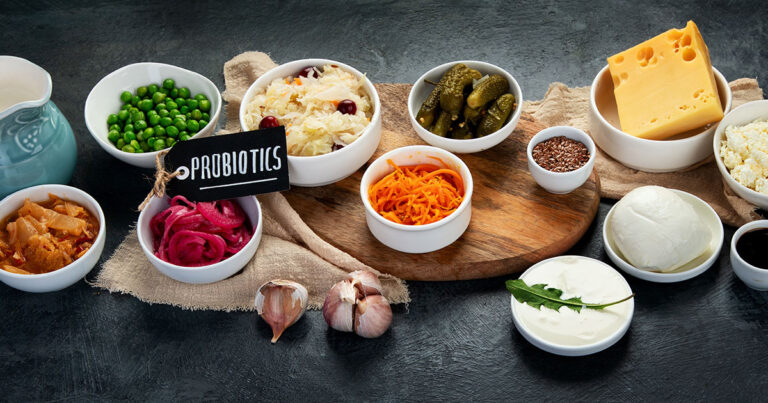- Now 2 Locations to Choose From!
- (727) 819-9107
- sabp@tampabaysurgicalgroup.com

Probiotics

Probiotics are live microorganisms that, when consumed in adequate amounts, offer a range of health benefits, particularly for digestive and immune health. They help maintain a healthy balance of gut bacteria, which can support digestion, prevent or treat diarrhea (especially that caused by antibiotics), and relieve symptoms of irritable bowel syndrome such as bloating and abdominal pain. Some strains also aid in breaking down lactose, making them beneficial for people who are lactose intolerant. Beyond gut health, probiotics have been shown to enhance immune function, potentially reducing the risk of respiratory and gastrointestinal infections. Emerging research also highlights a connection between the gut and brain, suggesting that certain probiotics—sometimes called psychobiotics—may help alleviate anxiety, depression, and stress. Additionally, some strains appear to support weight management, improve metabolic health, and contribute to modest fat loss. Probiotics may also benefit skin conditions like eczema and acne, support vaginal health by maintaining a balanced microbiome, and even help reduce the risk of allergies and eczema in infants. While these benefits are promising, it’s important to note that they are often strain-specific and may require consistent use to maintain effects. Not all probiotics are suitable for everyone, especially those with compromised immune systems, so it’s best to consult a healthcare professional when considering supplementation. Foods that naturally contain probiotics are cultured or fermented foods such as yogurt, kefir, miso, tempeh, sauerkraut, and kimchi.
The ideal frequency for consuming probiotic foods depends on individual health needs, but for most people, including a small serving of probiotic-rich foods daily or several times per week is a good goal. Regular intake helps maintain a consistent population of beneficial bacteria in the gut, since many probiotic strains don’t permanently colonize the digestive system and need to be replenished.
For general health and digestion, eating 1–2 servings per day of probiotic foods like yogurt, kefir, sauerkraut, or kimchi is typically sufficient. If you’re addressing specific concerns—such as recovering from antibiotic use, managing irritable bowel syndrome (IBS), or improving immune function—you might benefit from more consistent or targeted intake, possibly with the guidance of a healthcare provider.
It’s also beneficial to combine probiotics with prebiotic foods (like garlic, onions, bananas, oats, and legumes), which feed the good bacteria and help them thrive. Keep in mind that if you’re new to probiotic foods, it’s best to start gradually, as some people may experience temporary bloating or changes in digestion as their gut adjusts.
Shop Our Nutritional Products

Damian Bramer, Nutritionist
Damian earned her bachelor’s in nutrition science from UC Davis, California and is a certified nutrition consultant. She provides nutrition guidance and education for people who suffer from a wide array of conditions such as autoimmune disease, degenerative diseases, mental illnesses, diabetes, cancer and most recently obesity. She has also provided support for specialty groups such as athletes, adolescents, and the elderly.
She believes the best way to maintain good health is to adopt eating and lifestyle habits that are sustainable for the long term. These habits should not only be manageable but enjoyable to you as well. They should support your individual energy requirement, optimize your digestive health, lower inflammation, and keep your blood sugar balanced.
Strengthening the body’s systems and improving the quality of life with whole foods nutrition is the common goal for all her patients.
